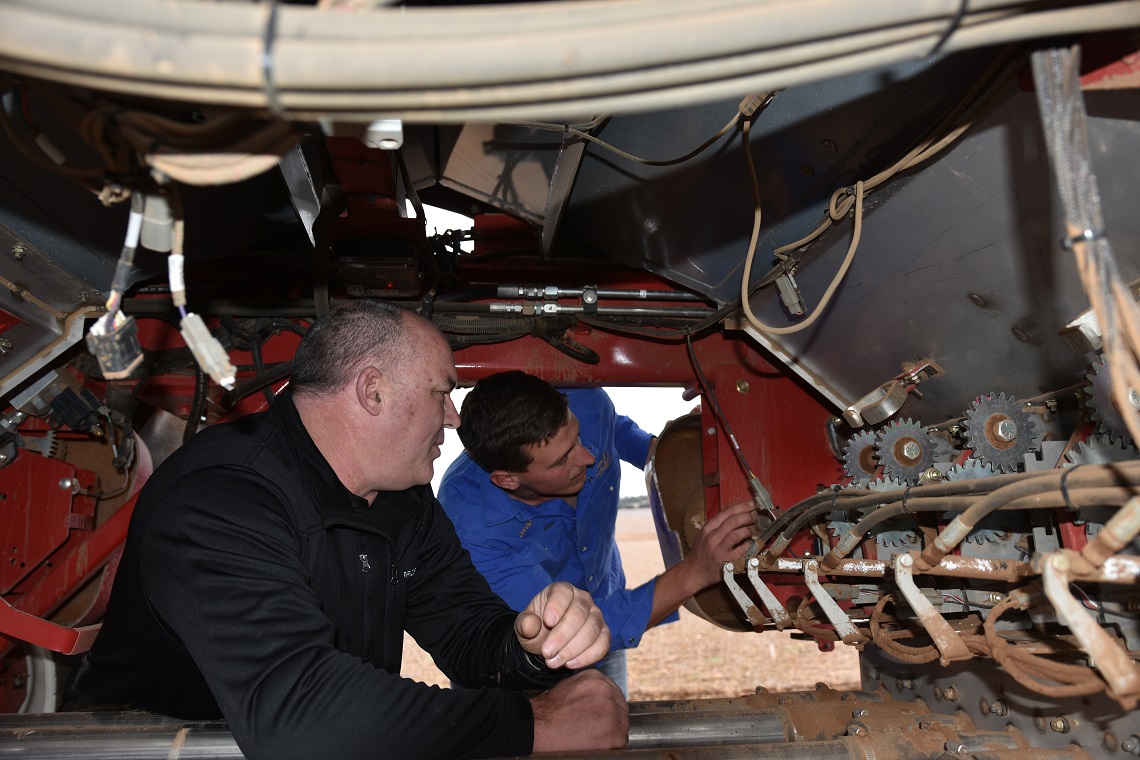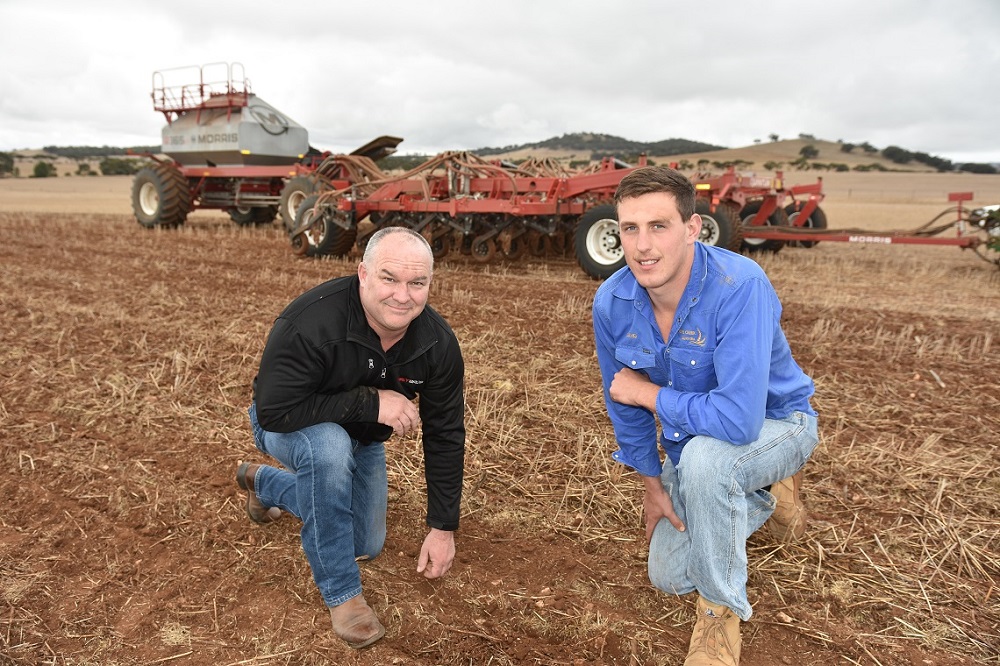

08 August 2022
McIntosh Willmott
WHEN deciding to upgrade their decades-old seeding rig, the Willmott family in the Mid North region of South Australia had an eye on the best technologies available – a system with all the bells and whistles that would thrust them into the future and stand the test of time for another decade or so.
Their decision was vindicated in year one, recording one of their best ever crop production seasons despite average rainfall conditions, albeit the rain fell at the right time.
Among some of the highest grain yields they have achieved, wheat and barley notched up to 5.5 tonnes per hectare, canola 3t/ha and faba beans 3.5-4t/ha. Canola normally yields around 2t/ha.
David Willmott and his parents, Rob and Anne, crop about 1215ha of their ‘Pine Creek’ property, located at Manoora, north of Saddleworth, and have added lentils to the program this year. They also mate about 1000 Merino ewes to White Suffolk terminal sires and usually run a couple of thousand trade lambs.
The property comprises mainly red country and some black soils in some of the better areas. David said the undulating terrain can provide for several different soil types in the one paddock.
The typical crop rotation includes wheat then barley, followed by canola or the faba beans or now lentils.
The program was sown with a 9-metre Gason bar and bin for about 20 years and after considering most of the latest systems on the market through their technology-focussed lens, the Willmotts didn’t hesitate upgrading to a larger Morris Quantum air drill and air cart, purchased through Ramsey Bros at Riverton.
“Morris really stuck-out for us and became a no-brainer,’’ David said.
“Section control with the air cart (via the Morris Input Control Technology (ICT) system) was one of the key features. Together, it is a real simple unit and there are no wheels in the centre frame of the Quantum bar, which helps avoid blockages.
“We were a little worried about all the technology and the section control, but it’s all pretty simple and reasonably easy to use.’’
The 12m Quantum air drill is set on 25-centimetre (10-inch) tyne spacings and features a double shoot seeding boot to allow deep banding of fertiliser, although the family so far has not banded fertiliser deeper in the soil profile.
David said the parallelogram row unit was a simple design and also accommodated paddocks with heavy crop stubbles.
“We had some thick straw paddocks where we didn’t think the parallelogram and press wheel behind the tyne would get through, but it was surprising and there were no real problems.’’
He said the interlocking frame design with the Quantum contributed to an extremely strong and sturdy bar, and large flotation tyres at the front and rear helped it maintain an excellent level, well highlighted in the dry sowing conditions in recent seasons.
“The digging and seed placement with the hydraulic tyne have been 100 per cent – it’s great, and we have a lot of undulating ground.’’
“With the other spring-tyne bar, a lot of grain was not even in the ground.
“The germination and establishment were huge last year. Once it rained after the dry start and with everything at a perfect depth, the germination was a lot better than with the old bar.’’
Morris Auto-Pack and Auto-Lift technology on the Willmott’s Quantum air drill further assisted germinations and an easy seeding operation.
Auto-Pack ensures furrows are correctly closed and packed, reducing the risk of any available moisture from evaporating, which is vital in dry seeding conditions, thereby creating the most ideal seed germination environment possible.
“You can also change the hydraulic pressure of the tynes inside the cab when you go over different soil types and through creeks, so you can get the depth perfect all the way through,’’ David said.
He said with the Auto-Lift, as the machine nears the end of a seeding run, the seed switches off, the tynes lift out of the ground and the rig can turn quite sharply.
“The machine follows quite well – it’s really good. A few people have been impressed and asked about it.’’
Using the Topcon X35 controller for auto-steer, the Willmotts run A/B paddock run lines and have been performing some inter-row sowing, while their machines also have been set up to allow for a 3m controlled traffic farming system if desired in the future.
The family opted for Australian-designed and manufactured, stainless steel upright air kits with their Quantum air drill as well, which David said were all perfect, and the narrow transport width was another bonus for negotiating the area’s tree-lined roads.
Meanwhile, the Morris 9365 air cart with ICT towed behind the Quantum had increased their capacity to a welcome 12,000 litres in two tanks, which had provided a big boost for operational efficiencies.
“We are now filling up two to three times a day instead of five to six times with the Gason,’’ David said.
“We also have room for a third tank, which we might look at for liquids later and maybe a small seeds box for canola.’’
Instead of a traditional auger, a conveyor loads product into the air cart, which he said also prevented “crunching’’ of the seed.
“It’s all hydraulic and controlled remotely. You steer it to the ground and there is no lifting – it’s great.’’
David said despite a small issue with the ICT initially, which was rectified by Ramsey Bros, the section control technology had shown its value for preventing overlap and would quickly pay for itself.
“The support from Ramsey Bros has been great. They took us through it all from start-up and have been straight out if we have had any issues, but they have only been minor things.’’
“We have a lot of triangular paddocks and so a lot of overlap. Coming to end strips, we can be overlapping by half the bar, so we are able to save quite a bit of seed and fertiliser with the section control. I’d say we are saving 5-10 per cent.’’
He said the product metering system on the Morris 9365 air cart also was highly accurate and calibration was a simple procedure.
“Once calibrated, it’s great to be able to change rates in the cab as well.’’
Despite the dry seeding conditions, the Willmotts are now hopeful for another promising season after good recent rainfall.
